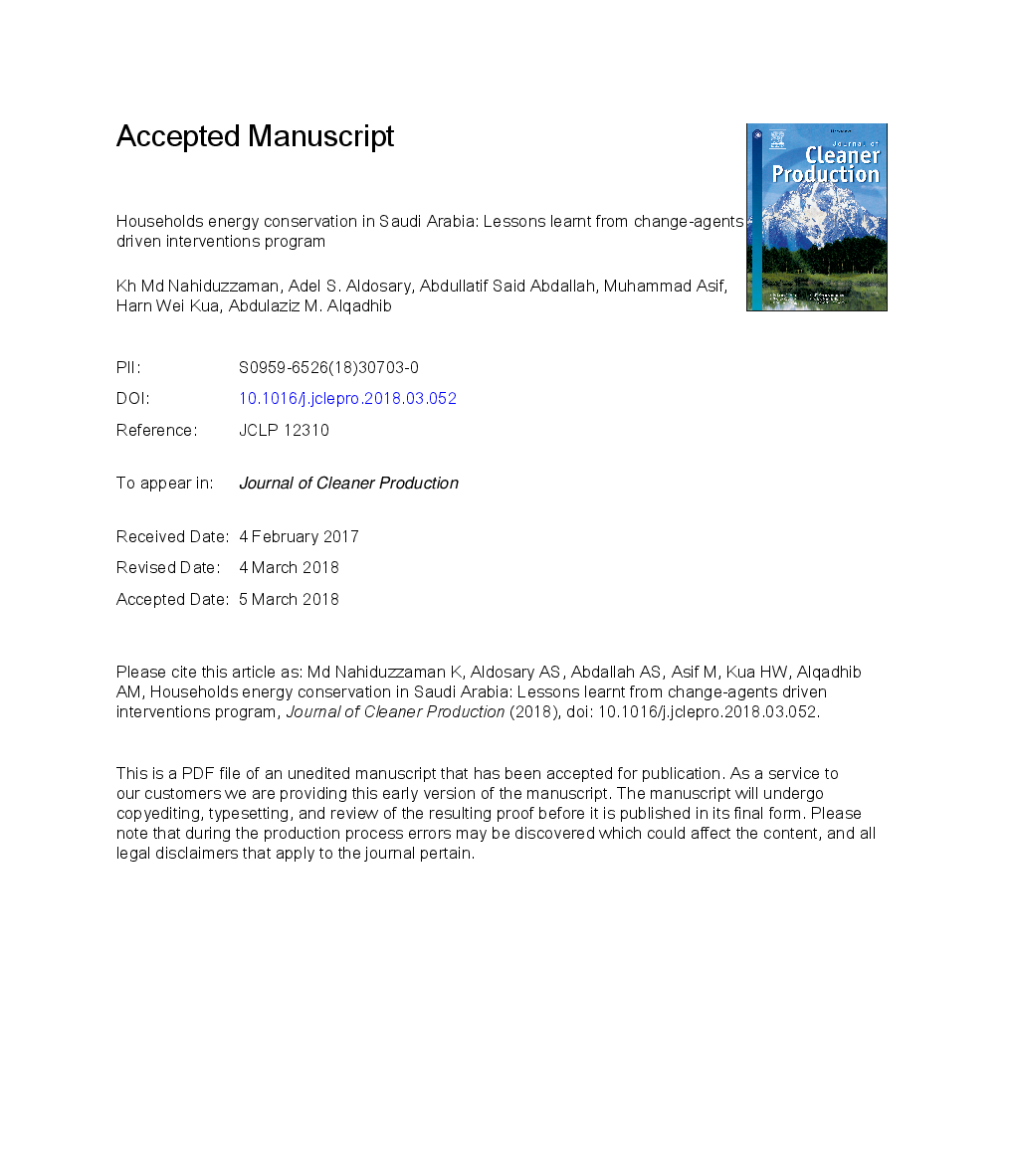ترجمه فارسی عنوان مقاله
صرفه جویی در انرژی خانوارها در عربستان سعودی: درس هایی که از برنامه های مداخله ای توسط عوامل تغییر یافته به دست آمده است
عنوان انگلیسی
Households energy conservation in Saudi Arabia: Lessons learnt from change-agents driven interventions program
| کد مقاله | سال انتشار | تعداد صفحات مقاله انگلیسی |
|---|---|---|
| 127375 | 2018 | 33 صفحه PDF |
منبع

Publisher : Elsevier - Science Direct (الزویر - ساینس دایرکت)
Journal : Journal of Cleaner Production, Volume 185, 1 June 2018, Pages 998-1014
ترجمه کلمات کلیدی
حفاظت انرژی، تغییر رفتاری، اثرات طول عمر، تمرین حفاظت،
کلمات کلیدی انگلیسی
Energy conservation; Behavioral change; Longevity effects; Conservation practice;

